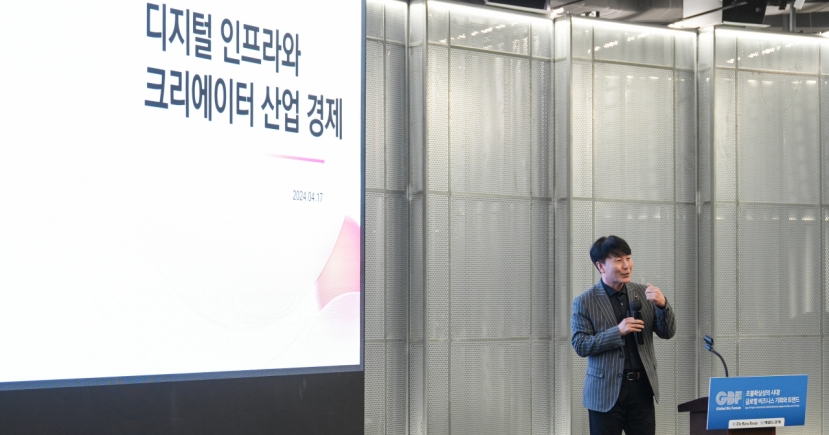Economy
China’s travel ban raises alarm on economic impact
[THE INVESTOR] China’s reported ban against travel agencies on selling tour programs to South Korea is expected to take a toll on South Korea’s tourism industry amid heightened tension felt by the Korean retailers significantly reliant on the Chinese market.
The China National Tourism Administration reportedly called in two dozen travel agencies in Beijing and instructed them to stop selling South Korean tour programs including both group packages and services for individual tourists, according to news reports on March 2 and March 3. Some sources said the ban was spreading to other cities and provinces including Shanghai and Jiangsu Province.
It is seen as the latest move to protest South Korea’s decision to deploy an advanced US missile defense system on the peninsula despite China’s protest.
Sealing the controversial plan, the board of Lotte International Co. passed Feb. 27 a land-swap deal with the South Korean Defense Ministry for the deployment of the Terminal High Altitude Area Defense system. The decision, although widely anticipated, immediately led to a hostile response from China.
The company’s duty-free website was closed for a few hours due to a cyberattack launched by unidentified hackers and its Chinese website, www.lotte.cn, has remained inaccessible to visitors since Feb. 28 afternoon.
A Shanghai-based tour guide specializing in South Korean tours said his company cannot receive any Korea-bound tour groups after March 15 as instructed by the CNTA.
The CNTA declined to comment on the matter when reached by The Korea Herald on March 3.
Meanwhile, the website of Ctrip, China’s biggest online travel agency, was still selling South Korean tour programs for as late as October.
It was also reported that the CNTA instructed travel agencies to exhaust those that have already been sold by mid-March.
The ban on tourism to South Korea raised the alarm here about the possible repercussions on the country’s tourism industry, as South Korea’s tourism heavily depends on Chinese tourists. In 2016, a total of 17.20 million foreign tourists visited South Korea and 8.06 million or 47 percent were Chinese, data from the Korea Tourism Organization showed.
It is estimated that about 60 percent of Chinese tourists traveled on their own, while the rest visited through package tours. Of the individual tourists, about half were presumed to have purchased hotel and flight ticket packages through travel agencies.
The ban on group tours and individuals who book flights and hotels through travel agencies could cut inbound Chinese tourists by half.
In 2015, 6.11 million Chinese tourists spent 15 trillion won ($13 billion) in South Korea, or 2.74 million won per person.
Their indirect and direct economic impact was estimated to be $22 billion won, according to the Korea Tourism Organization.
If the number of Chinese tourists halves, the number would also cut in half, industry watchers say.
Duty-free shops are expected to be hit the hardest.
Last year, the total sales of South Korea’s duty-free shops amounted to 12.27 trillion won, 72 percent of which was generated by foreign customers, with a significant number of those sales generated by foreigners attributed to Chinese tourists.
It would also weigh down on the country’s service account as it would lower the travel account income. The Bank of Korea said on March 3 that the service balance deficit hit a record high of $3.36 billion in January, almost doubling from $1.84 billion a year ago.
Since Seoul announced the deployment of THAAD, China has unofficially taken various measures including banning South Korea’s cultural products from being broadcast on TV in the country and internet websites. In October last year, the Chinese authorities allegedly ordered tour agencies to cut the number of travelers heading to China by 20 percent.
The Civil Aviation Administration of China rejected eight flights requested by three Korean airlines for January and February for unknown reasons. Requests to expand regular flights between China and Korea also have been denied.
By Park Ga-young/The Korea Herald (gypark@heraldcorp.com)
The China National Tourism Administration reportedly called in two dozen travel agencies in Beijing and instructed them to stop selling South Korean tour programs including both group packages and services for individual tourists, according to news reports on March 2 and March 3. Some sources said the ban was spreading to other cities and provinces including Shanghai and Jiangsu Province.
It is seen as the latest move to protest South Korea’s decision to deploy an advanced US missile defense system on the peninsula despite China’s protest.
Sealing the controversial plan, the board of Lotte International Co. passed Feb. 27 a land-swap deal with the South Korean Defense Ministry for the deployment of the Terminal High Altitude Area Defense system. The decision, although widely anticipated, immediately led to a hostile response from China.
The company’s duty-free website was closed for a few hours due to a cyberattack launched by unidentified hackers and its Chinese website, www.lotte.cn, has remained inaccessible to visitors since Feb. 28 afternoon.
A Shanghai-based tour guide specializing in South Korean tours said his company cannot receive any Korea-bound tour groups after March 15 as instructed by the CNTA.
The CNTA declined to comment on the matter when reached by The Korea Herald on March 3.
Meanwhile, the website of Ctrip, China’s biggest online travel agency, was still selling South Korean tour programs for as late as October.
It was also reported that the CNTA instructed travel agencies to exhaust those that have already been sold by mid-March.
The ban on tourism to South Korea raised the alarm here about the possible repercussions on the country’s tourism industry, as South Korea’s tourism heavily depends on Chinese tourists. In 2016, a total of 17.20 million foreign tourists visited South Korea and 8.06 million or 47 percent were Chinese, data from the Korea Tourism Organization showed.
It is estimated that about 60 percent of Chinese tourists traveled on their own, while the rest visited through package tours. Of the individual tourists, about half were presumed to have purchased hotel and flight ticket packages through travel agencies.
The ban on group tours and individuals who book flights and hotels through travel agencies could cut inbound Chinese tourists by half.
In 2015, 6.11 million Chinese tourists spent 15 trillion won ($13 billion) in South Korea, or 2.74 million won per person.
Their indirect and direct economic impact was estimated to be $22 billion won, according to the Korea Tourism Organization.
If the number of Chinese tourists halves, the number would also cut in half, industry watchers say.
Duty-free shops are expected to be hit the hardest.
Last year, the total sales of South Korea’s duty-free shops amounted to 12.27 trillion won, 72 percent of which was generated by foreign customers, with a significant number of those sales generated by foreigners attributed to Chinese tourists.
It would also weigh down on the country’s service account as it would lower the travel account income. The Bank of Korea said on March 3 that the service balance deficit hit a record high of $3.36 billion in January, almost doubling from $1.84 billion a year ago.
Since Seoul announced the deployment of THAAD, China has unofficially taken various measures including banning South Korea’s cultural products from being broadcast on TV in the country and internet websites. In October last year, the Chinese authorities allegedly ordered tour agencies to cut the number of travelers heading to China by 20 percent.
The Civil Aviation Administration of China rejected eight flights requested by three Korean airlines for January and February for unknown reasons. Requests to expand regular flights between China and Korea also have been denied.
By Park Ga-young/The Korea Herald (gypark@heraldcorp.com)








